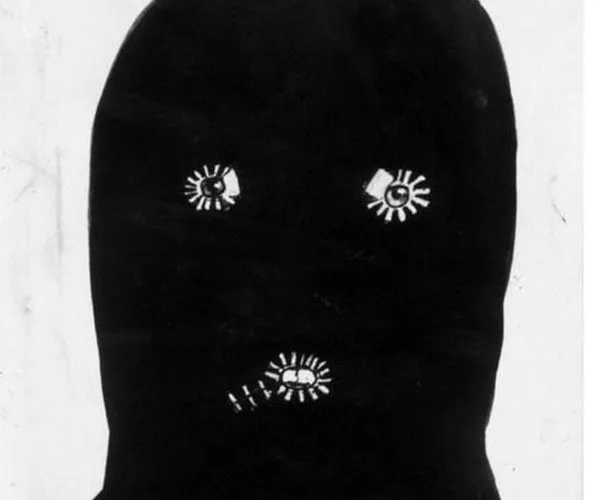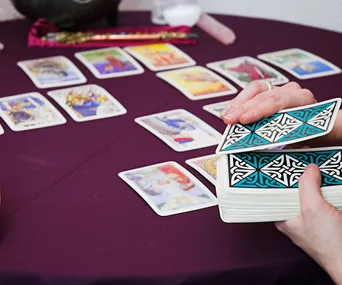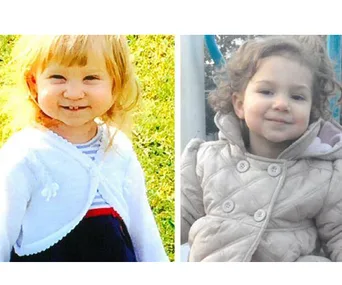Acclaimed criminologist Dr Xanthé Mallett examines the evidence in this shocking cold case;
Sitting down in their older sister Karmein’s bedroom, the three young girls began watching a documentary about Marilyn Monroe.
It was school holidays in 1991: 13-year-old Karmein Chan was babysitting her sisters, Karlie, nine, and Karen, seven, while their parents worked at the Chinese restaurant they ran, just 10 minutes away from the family home in Templestowe, north-west Melbourne.
At 9pm, Karlie and Karen went to the kitchen where they made a shocking discovery.
Standing there was a man in a black balaclava with white stitching around the eyes and mouth. He was holding a large knife.
The man forced the two sisters into a wardrobe, which he barricaded.
As darkness encased them, the evil intruder then grabbed Karmein and dragged her out onto the street.
Although the petrified girls managed to force their way out of the cupboard, they’d never see Karmein alive again…
Whoever the intruder was, he’d left a message, spray-painted on one of the cars at the Chan home: Payback More to come and Asian drug deal.
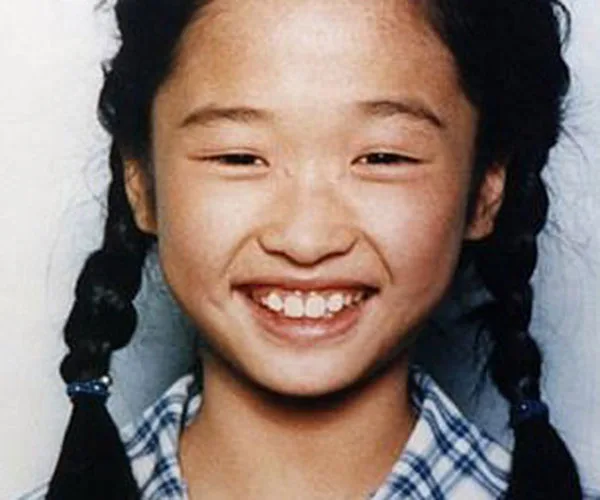
Karmein Chan’s death horrified Australians Photo credit: Express Digest
A police search and public call for information failed to produce any leads on Karmein’s whereabouts.
Four days before the one-year anniversary of her abduction, a dog-walker stumbled upon a skull at a State Electricity Commission terminal station 16km from the Chan home.
It was later confirmed to be Karmein’s. She’d been shot in the head three times.
Head of the Homicide Squad, Detective Chief Inspector Peter Halloran, suggested that Karmein’s body had likely been in this shallow grave ever since she was abducted.
The whole of Melbourne was gripped by fear that a child-killer was on the loose. And frighteningly, the murder of Karmein Chan bore striking resemblances to earlier cases.
On August 22, 1987, a man in a balaclava broke into a family home in Lower Plenty, where he tied up the parents and their six-year-old son.
The family’s 11-year-old daughter was made to clean her teeth before the man assaulted her.
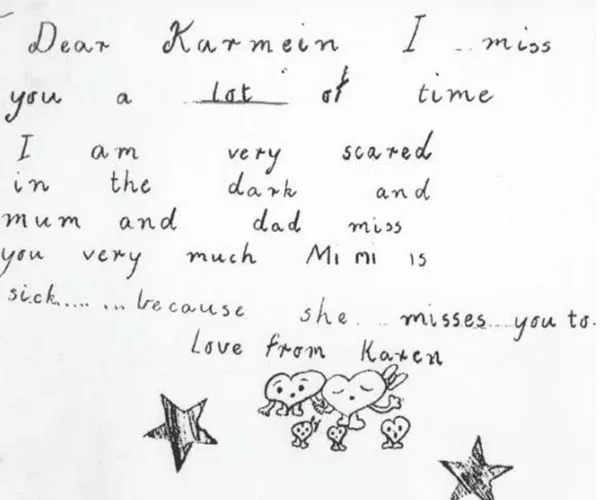
Karmein’s grief-stricken sister Karen wrote her a letter Photo credit: News.com
Then, 16 months later, there was another attack in Ringwood, Vic, when Julie Wills woke to the terrifying sight of a man pointing a gun at her.
After gagging Julie and her husband, John, the man entered the bedroom of their four girls.
One of them, 10-year-old Sharon, was pretending to sleep.
But the intruder called Sharon by her name and bound her, placing masking tape over her mouth and eyes before taking her outside.
Desperate to get their child back, John and Julie broke free and called the police.
Almost a full day passed before Sharon was discovered alive outside a school, dressed in a man’s shirt and bin bags.
She later told police that the kidnapper had instructed her to shower and brush her teeth, while insisting that she remain blindfolded for the entire 18-hour abduction.
“We can only dread what the man would have done if the girl had pulled off the blindfold and seen his face,” Detective Chief Inspector Des Johnson told media. “It is that close to being a homicide.”
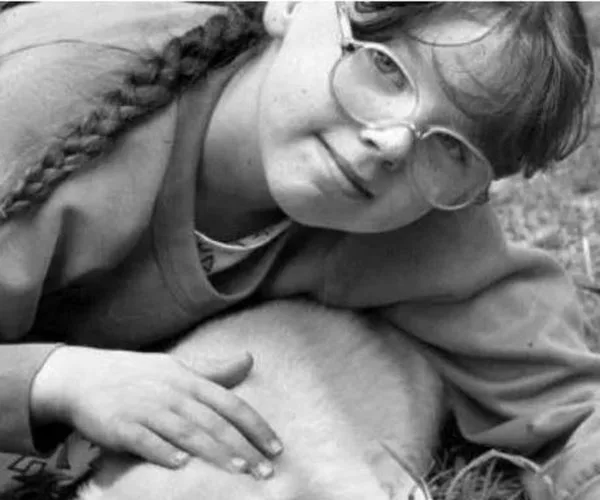
Sharon Wills was kidnapped by Mr Cruel Photo credit: Kidspot
The attacker, nicknamed Mr Cruel by the media, struck again 18 months later, when he broke into a home in Canterbury at 11.40pm.
Armed with a knife and handgun, he woke Nicola Lynas, 13, and her sister, Fiona, 15, who were home alone.
Gagging Fiona, he took Nicola captive for hours before releasing her at a power substation.
Nicola had been sexually assaulted.
The attacker insisted that Nicola brush her teeth properly.
Just like Sharon, she too was given food and drink.
Mr Cruel has never been caught, but descriptions from his victims helped compile an image of an Australian man aged between 30-50, between 173-180 centimetres tall, with a pot belly.
His hair is believed to be fair or sandy, and he often used words like “worry wart”, “bozo” and “missy.”
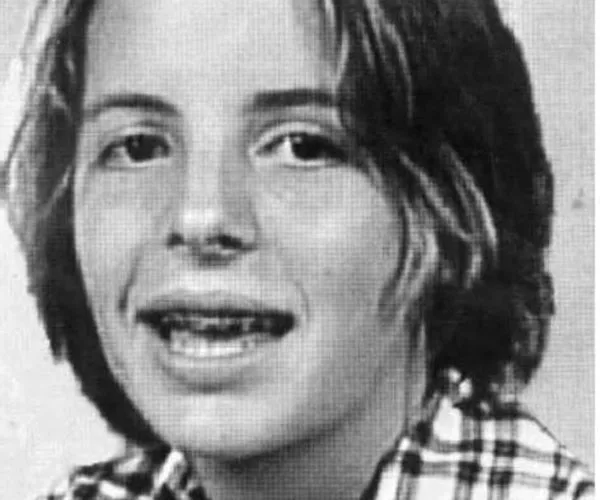
Nicola Lynas Photo credit: Kidspot
In her new book, Cold Case Investigations, leading forensic anthropologist and criminologist Dr Xanthé Mallett admitted that one of the difficulties in getting inside the predator’s head was the fact that very little is known about him.
“One thing I could do to get a sense of Mr Cruel was to be in his space, the zone he hunted in and where he felt most comfortable,” she said.
On a trip to Melbourne, Dr Mallett drove around the location where the girls were taken.
“He must have watched his victims, planned how to access them. Watched and waited. He was clever, but he was also lucky. And cunning, rat cunning. Hard to see these kids as prey, but that’s what Mr Cruel’s eyes would have shown him and that’s how I needed to think to understand this predator,” she revealed.
Dr Mallett described Mr Cruel as someone with “a specific interest in children” – especially children aged between 10 and 13.”This offender specifically targeted children in their prepubescent stage,” she noted.
Interested to discover whether Mr Cruel was a paedophile, Dr Mallett met criminal psychologist Tim Watson-Munro, who had worked on the case.
“Mr Cruel wasn’t an exclusive paedophile,” he told her. “Prior to him gaining national prominence for his infamous crimes, he was active in Melbourne. I had been retained by the Victorian Police to profile his offending, which exposed me to the full range of his actions.
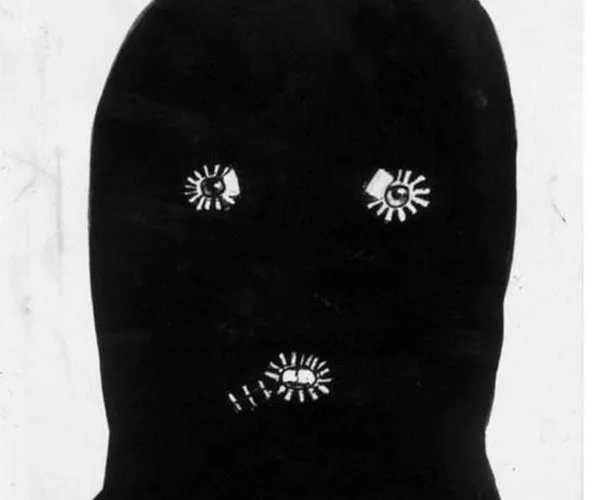
Police sketch of Mr Cruel’s balaclava Photo credit: Herald Sun
“These included rape and confinement of an elderly nun in a Melbourne northern suburb, with him brazenly taking her car and her ATM card in order to drive to the local bank and steal her savings.There were a number of other crimes involving the detention and rape of adult women.”
Dr Mallett noted that Mr Cruel was “meticulously careful” not to leave DNA evidence, which means we may never know his identity.
“The case is totally devoid of forensic evidence,” she wrote.
A $1 million reward for information leading to the arrest and conviction of the criminal still exists.
The Office of Public Prosecutions will also consider granting immunity from prosecution to anyone who comes forward with information.
Dr Mallett concluded that: “After all this time, this is really the last chance the police have to catch – or identify, if they are deceased – this man.”
